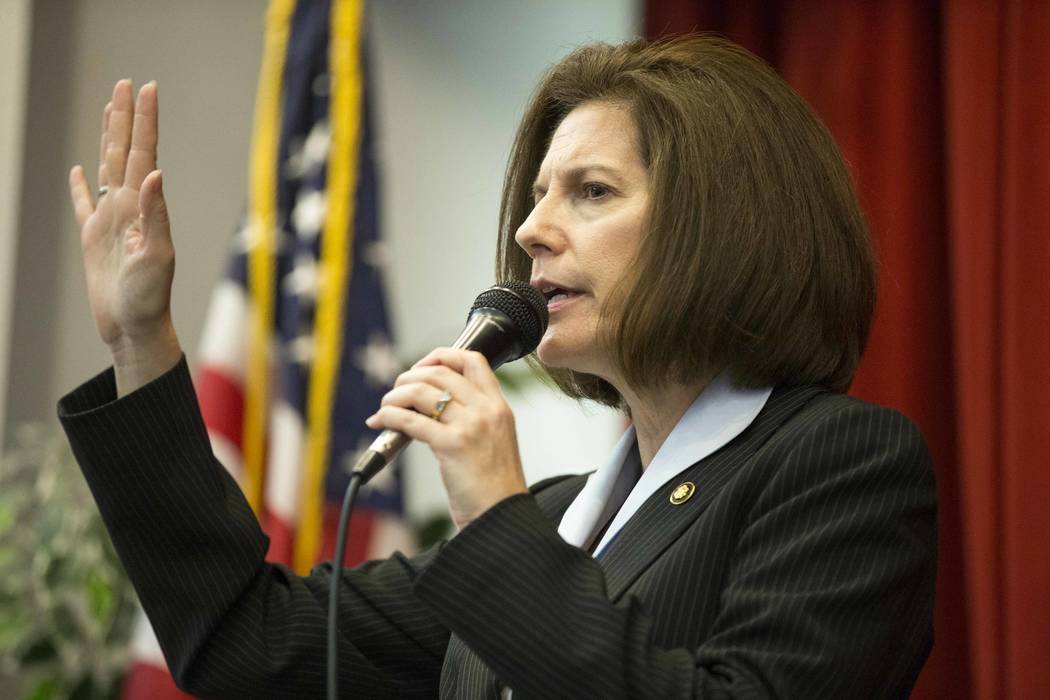Cortez Masto bill targets bug-based food, robot bartenders

WASHINGTON — Nevada’s soon to be senior senator cosponsored a bipartisan bill Thursday to raise awareness of wasteful spending by the federal government, though observers gave it little chance of passing in either the House or Senate.
Sens. Catherine Cortez Masto, D-Nev., and Jeff Flake, R-Ariz., filed the REDUCE Government Waste Act, which would cut tens of millions of government spending each year if enacted in the waning days of Congress.
Cortez Masto said the bill aims to send a message that with the national debt at “more than $21 trillion, we must begin to eliminate wasteful spending happening in the federal government.”
The lawmakers targeted three specific programs, including a law that allows repayment of loans with peanuts, subsidies for bug-based foods and grants to develop robotic bartenders.
“It’s just nuts to shell out millions of dollars to subsidize surplus piles of peanuts, bug-based foods and robo bartenders,” Flake said.
The Removing Excessive Dollars to Uproot and Cut Expensive (REDUCE) Government Waste Act includes provisions to:
— Prohibit the repayment of loans with peanuts. The bill would terminate a U.S. Department of Agriculture program that accepts peanuts as payment for federal loans. The program cost taxpayers $13.6 million in 2016 and $31.5 million in 2017.
— Prohibit agricultural subsidies for bug-based foods. The measure would bar the USDA and the Food and Drug Administration from using funds to research the development and taste-testing of insect-based foods for human consumption. It would also prevent funds from being utilized to research cricket farming. The USDA’s National Institute of Food and Agriculture spent more than $1.3 million in grants for companies to research taste-testing of insects and the costs of farming crickets.
— Permanently eliminate grants for robot bartenders: It would prohibit the Department of Defense from using funds to develop “beerbots” and robot bartenders. The DOD and National Science Foundation recently gave grants, including one worth nearly $175,000, to the Massachusetts Institute of Technology that was used to work on robots that served beer. The bill notes that the concept of robot bartenders has already been extensively researched by and involved in the private industry. For example, in 2014, Royal Caribbean cruise ships featured the “Makr Shakr,” a robot developed by MIT that would prepare customers’ drink orders.
Contact Gary Martin at gmartin@reviewjournal.com or 202-662-7390. Follow @garymartindc on Twitter.














